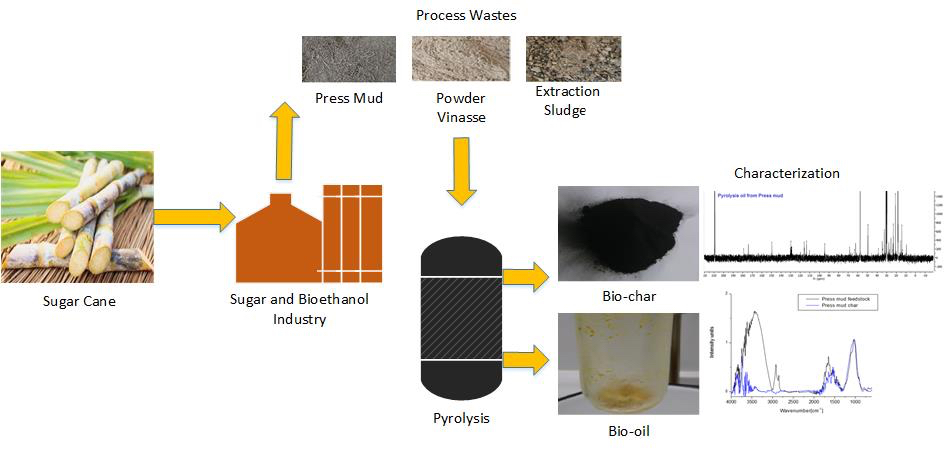Ahmedabad
(Head Office)Address : 506, 3rd EYE THREE (III), Opp. Induben Khakhrawala, Girish Cold Drink Cross Road, CG Road, Navrangpura, Ahmedabad, 380009.
Mobile : 8469231587 / 9586028957
Telephone : 079-40098991
E-mail: dics.upsc@gmail.com

Pressmud for Green Energy
News: India is seeking to explore the potential of Pressmud, a residual byproduct of sugar production, as a valuable resource for generating green energy.
Background:
• The main focus is on creating Compressed Biogas (CBG) from Pressmud.
What is Compressed Biogas?
• Compressed Biogas (CBG) is a gaseous fuel derived from the anaerobic decomposition of organic materials. It is produced through Biomethanation or anaerobic digestion, breaking down various organic sources like agricultural waste, animal manure, food waste, sewage sludge, and other biomass materials.
• The resulting biogas consists mainly of methane (usually exceeding 90%), along with carbon dioxide, traces of hydrogen sulfide, and moisture.
• Purification steps are employed to eliminate impurities like carbon dioxide, hydrogen sulfide, and moisture from the biogas. The purified methane gas is then compressed to a high pressure, typically around 250 bar or higher.
What is Pressmud?
• Pressmud, also known as filter cake or press cake, is a residual byproduct in the sugar industry. It is produced during the filtration of cane juice.
• Pressmud has been acknowledged as a valuable resource for green energy production.
What are the advantages of Pressmud Utilization for Compressed biogas?
• Simplified Feedstock Supply Chain: Pressmud eliminates the complexities associated with feedstock supply chains, as seen in the case of agricultural residue.
• Single-Source Sourcing: The feedstock is sourced from one or two producers or sugar mills, streamlining the procurement process compared to agricultural residue involving multiple producers.
• Quality Assurance: Pressmud’s quality is consistent, unlike municipal solid waste, reducing concerns about inorganic material damaging anaerobic digesters.
• Cost-Effective: Pressmud proves more economical than other feedstocks like agricultural residue and cattle dung, with a conversion efficiency that requires less input for the same gas output.
• Green Energy Production: Pressmud is a source of organic matter, which can be decomposed anaerobically and can be converted into methane-rich biogas.
• Organic Manure: High fiber and humus content also make Pressmud a good source of organic manure.
Challenges:
• Pressmud faces specific challenges such as rising prices, competition for use as fertilizer and in biocomposting, contending with spent wash and being used as fuel in brick kilns, and storage challenges.
• Despite these challenges, the utilization of pressmud for CBG production has tremendous potential to reduce import bills of natural gas and crude oil as well as to reduce government subsidy bills on chemical fertilisers.

Address : 506, 3rd EYE THREE (III), Opp. Induben Khakhrawala, Girish Cold Drink Cross Road, CG Road, Navrangpura, Ahmedabad, 380009.
Mobile : 8469231587 / 9586028957
Telephone : 079-40098991
E-mail: dics.upsc@gmail.com
Address: A-306, The Landmark, Urjanagar-1, Opp. Spicy Street, Kudasan – Por Road, Kudasan, Gandhinagar – 382421
Mobile : 9723832444 / 9723932444
E-mail: dics.gnagar@gmail.com
Address: 2nd Floor, 9 Shivali Society, L&T Circle, opp. Ratri Bazar, Karelibaugh, Vadodara, 390018
Mobile : 9725692037 / 9725692054
E-mail: dics.vadodara@gmail.com
Address: 403, Raj Victoria, Opp. Pal Walkway, Near Galaxy Circle, Pal, Surat-394510
Mobile : 8401031583 / 8401031587
E-mail: dics.surat@gmail.com
Address: 303,305 K 158 Complex Above Magson, Sindhubhavan Road Ahmedabad-380059
Mobile : 9974751177 / 8469231587
E-mail: dicssbr@gmail.com
Address: 57/17, 2nd Floor, Old Rajinder Nagar Market, Bada Bazaar Marg, Delhi-60
Mobile : 9104830862 / 9104830865
E-mail: dics.newdelhi@gmail.com